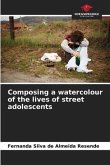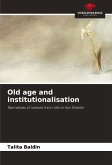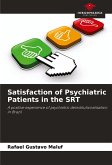This study aims to investigate the meaning produced by mental health users in relation to the condition of being institutionalised in a hospital, using the Brazilian Mental Health Policy as a reference base. The results show that the perception of mental disorder has its own characteristics for each participant, but shares the same idea: that mental disorder is considered a complex, bad and painful condition for those who experience it. Long stays in hospital, on the other hand, have several meanings: imprisonment, idleness, curing addiction and belonging to the institution, as they see the hospital as a resource they can count on in the absence of their families, but they make it clear that they don't want to live in that environment for long. We found that a large proportion of institutionalised people have a mental disorder, but these are complaints and symptoms that do not justify prolonged hospitalisation, not least because they are all being discharged and this is exclusively a political and social issue.
Bitte wählen Sie Ihr Anliegen aus.
Rechnungen
Retourenschein anfordern
Bestellstatus
Storno








